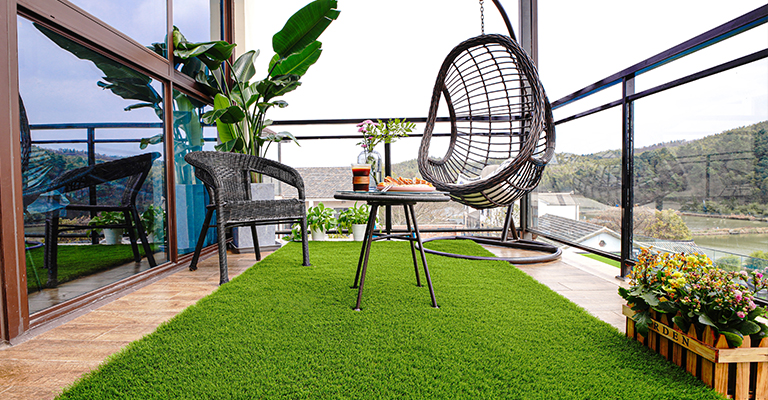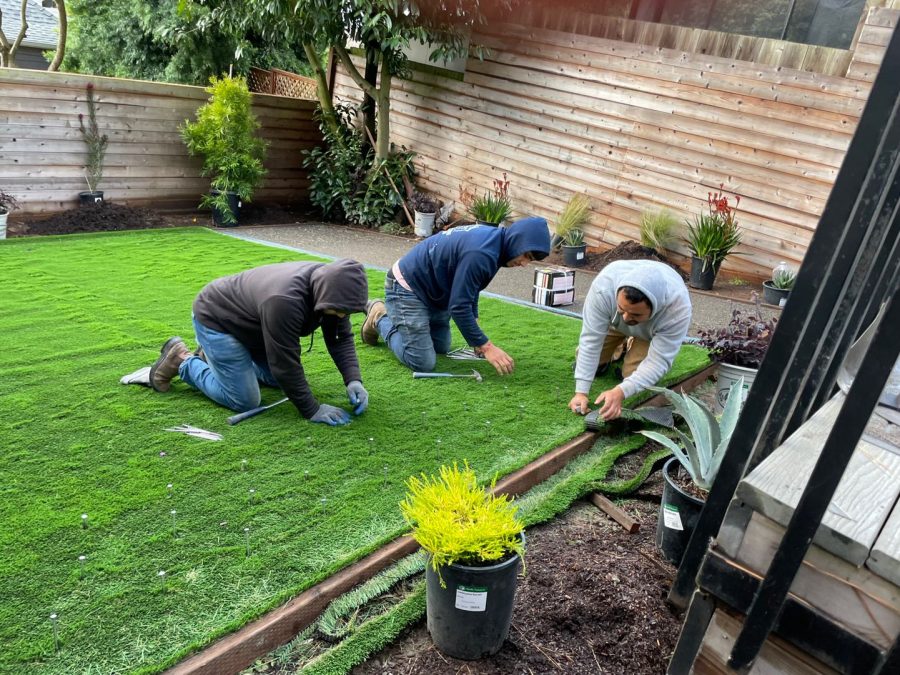Find Trusted Artificial Turf Companies Phoenix for High-Quality and Natural-Looking Grass
Find Trusted Artificial Turf Companies Phoenix for High-Quality and Natural-Looking Grass
Blog Article
See Why Homeowners Prefer Artificial Turf for Sustainable Landscaping Practices
As home owners significantly prioritize sustainability in landscape design, synthetic grass has emerged as a compelling choice to traditional grass. Its ability to conserve water, reduce maintenance efforts, and reduce environmental effect settings it as a sensible choice for those looking for eco-friendly remedies. Furthermore, the aesthetic appeal and adaptability of fabricated turf deal with diverse design preferences. Nonetheless, the ramifications of this shift expand past mere ease and visual appeals, motivating a better evaluation of how these selections influence broader ecological outcomes. What continues to be to be explored is the complete extent of advantages that synthetic grass can provide to property owners and the atmosphere alike.
Water Conservation Conveniences
One of the most considerable benefits of synthetic grass is its duty in water conservation. Conventional lawn yards require significant amounts of water to preserve their rich look, typically leading to overuse of regional water sources, especially in dry regions. On the other hand, artificial grass removes this need completely, as it does not call for watering. This not only saves water but likewise lowers the stress on municipal water systems, specifically during drought conditions.
Additionally, the installment of synthetic grass can add to an extra lasting landscape. Homeowners can significantly lower their water bills, permitting reallocation of sources to various other ecological campaigns or family usages. In addition, synthetic grass is developed to stand up to different climatic problems without the demand for extra watering, making it a suitable option for regions encountering water shortage.
The environmental benefits expand beyond immediate water financial savings. By minimizing water usage, synthetic grass assists to reduce the impacts of environment modification, preserving vital communities that are threatened by too much water removal. As sustainable landscape design techniques get traction, synthetic grass becomes a liable choice for home owners seeking to develop eco-friendly exterior spaces.
Lowered Maintenance Initiatives
Man-made turf dramatically decreases upkeep efforts contrasted to conventional grass lawns. With fabricated turf, home owners can remove the taxing tasks connected with natural landscape design, such as mowing, fertilizing, and weeding. This not only conserves important time however additionally decreases physical labor, making yard treatment available for people of every ages.
Traditional lawns require frequent trimming to maintain an aesthetically pleasing height, whereas artificial turf remains regularly lavish without the demand for reducing. In addition, homeowners no longer need to apply pesticides or plant foods, which are frequently required to keep natural grass healthy and balanced.
In addition, synthetic grass is resistant and sturdy, needing minimal maintenance past periodic brushing and rinsing to remove particles. This convenience of upkeep enables property owners to enjoy their outdoor spaces without the consistent fear of maintenance, offering even more time for leisure and family members tasks. Ultimately, the reduced upkeep efforts connected with fabricated grass make it an appealing alternative for those seeking a low-maintenance, visually appealing landscape.

Ecological Impact Decrease
There is an expanding recognition of the ecological benefits related to synthetic grass, particularly in regards to water conservation and minimized chemical usage. Conventional yards require considerable quantities of water, specifically in drought-prone regions, causing increased stress on regional water sources. In contrast, synthetic grass gets rid of the demand for watering, considerably lowering water consumption and advertising sustainability.
In addition, conventional yard upkeep frequently entails the application of pesticides, fertilizers, and herbicides, which can add to dirt and water pollution. Artificial turf reduces this environmental hazard by requiring marginal upkeep and practically eliminating the demand for dangerous chemicals. This not just improves dirt health and wellness however likewise shields local ecological communities from hazardous runoff.
Furthermore, the production of all-natural lawn yards normally entails the usage of fossil gas for mowing and landscaping tools, additional adding to greenhouse gas emissions. By selecting synthetic grass, homeowners can dramatically lower their carbon impact connected with grass care activities.
Aesthetic Charm and Adaptability
In enhancement to its environmental advantages, man-made lawn provides considerable visual allure and flexibility for landscaping. House owners can attain a rich, eco-friendly look year-round, removing the seasonal fluctuations typically connected with natural grass. This regular visual not just improves the visual appeal of a residential property but pop over to this site also adds to a properly maintained and sleek look.
Furthermore, synthetic grass is offered in a range of appearances, designs, and shades, permitting customization to view it fit private choices and design themes - Arizona artificial turf. Whether used in residential yards, industrial spaces, or leisure locations, it can perfectly integrate into diverse landscaping styles, from modern minimalist to lavish exotic setups
The adaptability of synthetic grass prolongs beyond simple appearance; it can be mounted in numerous areas, consisting of roofs, patio areas, and also indoor areas, creating chances for distinct landscape design solutions. Furthermore, it is ideal for a variety of activities, from children's play locations to pet-friendly environments, giving functionality without compromising style.
Inevitably, the aesthetic allure and flexibility of synthetic grass make it an appealing choice for property owners looking for lasting landscape design remedies that do not compromise elegance for environmental obligation.

Long-Term Price Financial Savings
Among the most engaging advantages of synthetic grass is its capacity for lasting expense financial savings. Unlike all-natural lawn, which calls for normal maintenance-- including mowing, watering, fertilizing, and insect control-- synthetic grass dramatically minimizes these continuous costs. Home owners can save a substantial quantity on water bills, specifically in regions where water deficiency is a pushing problem. The removal of yard treatment solutions better contributes to economic cost savings, as there is no demand for specialized equipment or labor.
In addition, fabricated lawn has a lifespan of 15 to 25 years, depending on its high quality and use. This toughness lessens replacement costs, making it a more affordable selection in the future. The initial investment in artificial grass can often be redeemed with the financial savings built up over time.
While the in advance expense may appear greater compared to sod installment, the cumulative financial savings from lowered maintenance and water usage frequently outweigh these first expenditures. Inevitably, the adoption of synthetic grass not only more promotes a sustainable landscape design remedy yet additionally offers homeowners a financially wise option that straightens with long-lasting budgeting objectives.
Verdict
Man-made lawn emerges as an engaging option for lasting landscape design, offering substantial advantages in water preservation, reduced upkeep efforts, and lessened ecological influence. As neighborhoods significantly prioritize eco friendly techniques, the adoption of man-made turf stands for a dynamic step towards accomplishing resistant and lasting landscapes.
Furthermore, fabricated lawn is created to hold up against various weather problems without the need for additional watering, making it an optimal choice for regions facing water shortage. (Arizona artificial turf)

Fabricated lawn emerges as a compelling choice for lasting landscaping, offering substantial advantages in water conservation, lowered maintenance initiatives, and diminished ecological impact.
Report this page